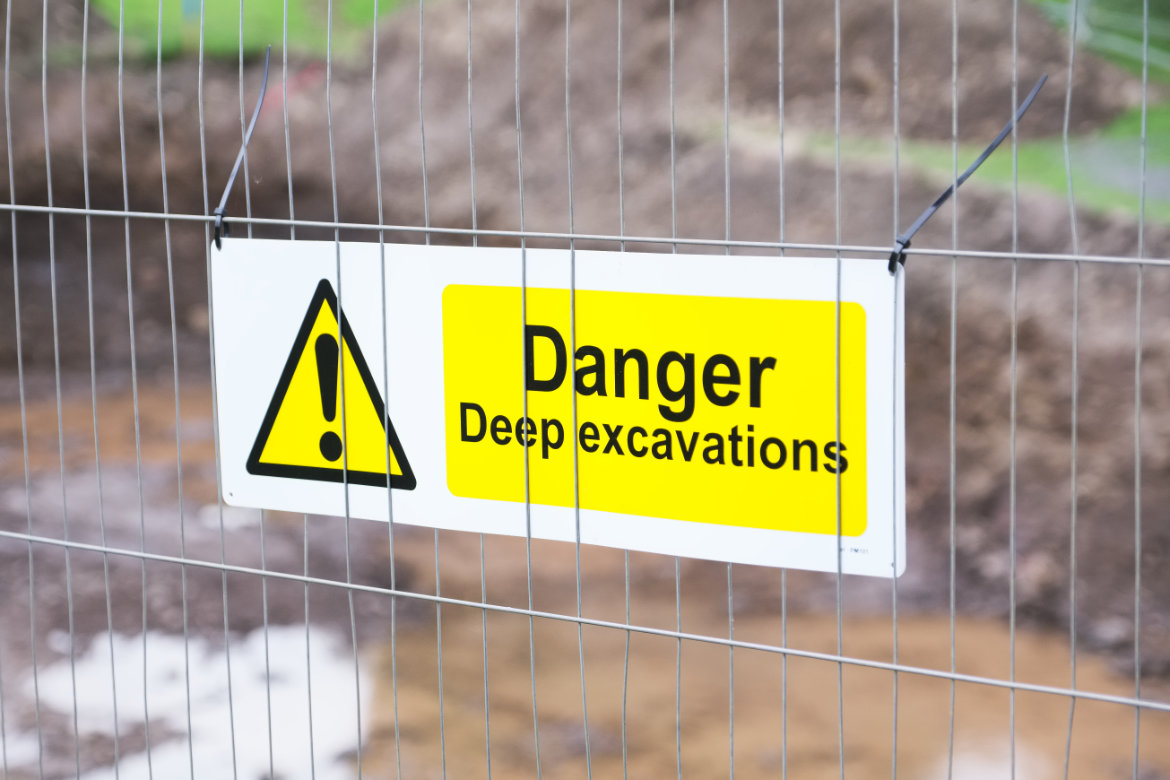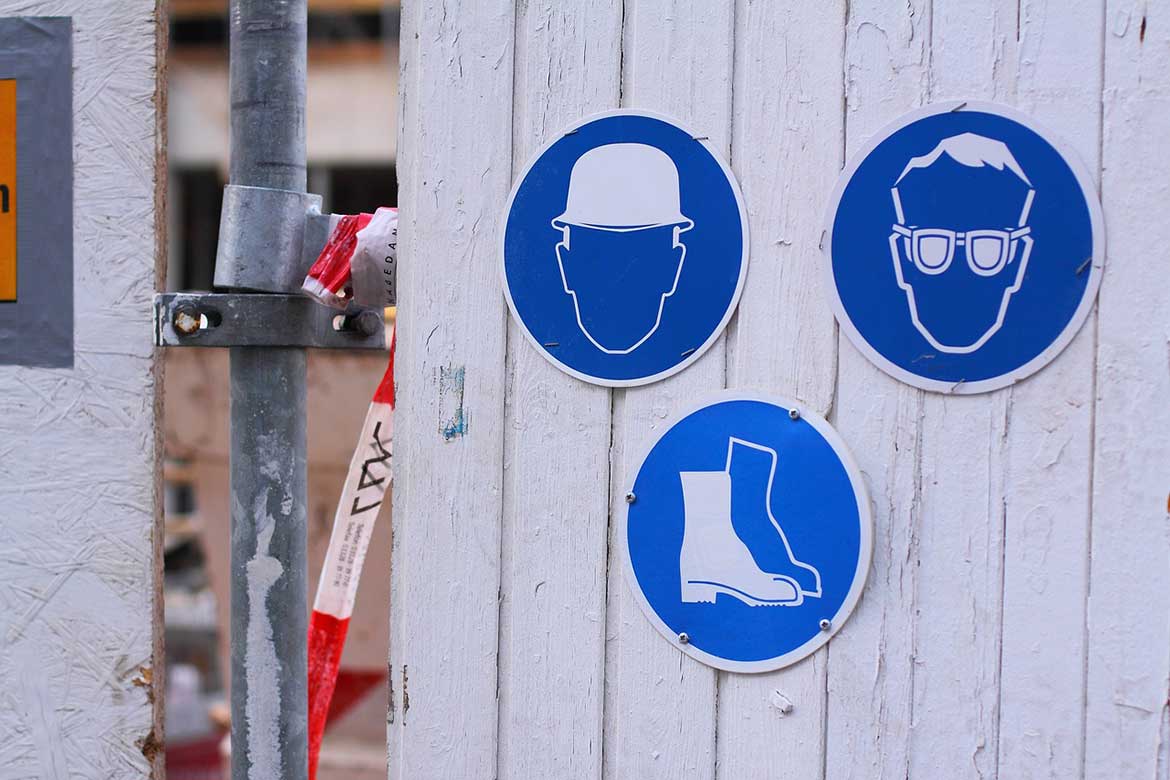5th June, 2024
Are Toolbox Talks A Legal Requirement?
Toolbox talks are often used as part of a good health and safety management system to refresh, renew and provide health and safety information. But beyond being good practice, are toolbox talks a legal requirement?

A toolbox talk is a way of giving health and safety information to your workforce, and starting a health and safety conversation. It's a short 5-10 minute talk on a particular health and subject.
But are you required to do them by law?
Not strictly. But also yes.
Let me explain...
Toolbox talks are not a specific legal requirement, but providing health and safety instruction and information to your workforce is - and toolbox talks are a way of doing that.
Toolbox talks are not a legal requirement
You won't find the term "toolbox talk" in the health and safety regulations. But that doesn't mean they can't help you comply with your legal responsibilities as an employer.
When considering whether toolbox talks are a legal requirement, it is important to first ask, what is a toolbox talk?
Toolbox talks are often used as part of a good health and safety management system to refresh, renew and provide health and safety information.

Find out more about toolbox talks in what is a toolbox talk?
But beyond being good practice, are toolbox talks a legal requirement? Should you be doing them? And if so, how often?
Toolbox talks, specifically, are not a law. There's no 'toolbox talks at work act'. When you dive into the hundreds and thousands of pages of health and safety legislation, you are not going to see a regulation stating that "you must deliver a toolbox talk" or "x number of toolbox talks per year".
But there is the letter of the law, and then there is the spirit of the law.
And just because toolbox talks don't have their own regulation or act, doesn't mean they can't be part of your legal compliance. Even if they are not specifically mentioned in the regulations.
Toolbox talks can comply with legal requirements
Toolbox talks are a good health and safety practice, and they do bring with them lots of benefits. A more engaged workforce is a safer workforce. While they are not mentioned specifically in health and safety regulations, there are specific regulations relating to the provision of information and instruction. What is a toolbox talk? It's a way of providing information and instruction to your team!
So toolbox talks can help you comply with the legal requirement of providing information, instruction and training to your team.
Let's look at a couple of examples of where this requirement comes up in health and safety law.
(c) the provision of such information, instruction, training and supervision as is necessary to ensure, so far as is reasonably practicable, the health and safety at work of his employees;
The Health and Safety at Work etc. Act is the big one when it comes to health and safety law. It applies to every workplace. To all employers. And, it's the act that allows all other health and safety regulations to exist!
So the main Health and Safety Act requires information, instruction, and training to be given to employees. And toolbox talks are a daily way of delivering the information your workers need.
For example, if you are starting work on a new construction site, you can pick a toolbox talk topic on excavations or CDM to let your team know about the hazards and risks present, or the rules they need to follow.

And it's not just the Health and Safety Act that toolbox talks can help you comply with. Various other regulations also specify that relevant health and safety information must be provided. And toolbox talks can help you provide that information.
10.—(1) Every employer shall provide his employees with comprehensible and relevant information on—
- the risks to their health and safety identified by the assessment;
- the preventive and protective measures;
- (2) Every employer shall ensure that his employees are provided with adequate health and safety training.
(8) A contractor must provide each worker under their control with appropriate supervision, instructions and information so that construction work can be carried out, so far as is reasonably practicable, without risks to health and safety.
12.—(1) Every employer who undertakes work which is liable to expose an employee to a substance hazardous to health shall provide that employee with suitable and sufficient information, instruction and training.
There are four examples of regulations where information, instruction and training are required. And it doesn't stop there. Look at any set of health and safety regulations and you're likely to find the requirement to provide information and instructions. And that makes sense. Of course, your team need to know about the hazards they face and the risks involved with their work. They need to know what to do and how to do it safely.
So the law doesn't specifically say you need to give toolbox talks. But it does say you need to provide information. Toolbox talks are certainly a way of providing relevant health and safety information and instruction.

Toolbox talks are a great way to provide bitesize information and instruction to your team. They don't replace larger training needs, but they do allow you to refresh knowledge, provide information, and comply with legal requirements.
One of the most powerful things about toolbox talks is that this information and instruction can be delivered when it is most needed. On the job, where the risks are. And toolbox talks are focused. By discussing one subject in each talk, you can quickly get to the point. Keeping talks interesting and engaging. Making sure the important information is heard and understood.
Find out how often you should be giving toolbox talks and the benefits of daily toolbox talks.
Now, of course, toolbox talks aren't full training courses. They are just 5-minute chats or presentations. They don't give your team all the information and training they need. But they are an opportunity to repeat important information, or update workers. They can also be used as a short form of refresher training in between more substantial health and safety courses that may be carried out at less frequent intervals.
Are toolbox talks a legal requirement? They may not be a specific legal requirement, but they will certainly help you to comply with health and safety laws.
Need to start giving toolbox talks to your team? Here are some free toolbox talks for construction, or you can use our online Talks Plan membership!
This article was written by Emma at HASpod. Emma has over 10 years experience in health and safety and BSc (Hons) Construction Management. She is NEBOSH qualified and Tech IOSH.
Need toolbox talks?
Get toolbox talks for you and your team with HASpod talks membership.
Talks PlanRecent posts like this...

30+ Free Toolbox Talks For Construction
Carrying out regular toolbox talks isn't always easy when you need to come up with a subject, prepare, and deliver the content. It's easier when you have your talk ready and prepared. In this post, we look at over 30 free toolbox talks for construction. Download and use them for your site.
Read Post
The Best 100 Safety Topics For Daily Toolbox Talks
It can be hard to think of ideas for health and safety toolbox talks, but luckily, there are many subjects you can use. Check out these 100 safety topics to help you get started, and find out why each topic is important, who needs to hear it, and what information to cover.
Read Post
How To Write A Toolbox Talk
How do you write a toolbox talk? It's not always easy to start with a blank page and decide what to talk about. And even though toolbox talks are short, preparing the talk is not so quick and simple. Follow our guide and learn how to create the perfect toolbox talk (in less time!).
Read Post